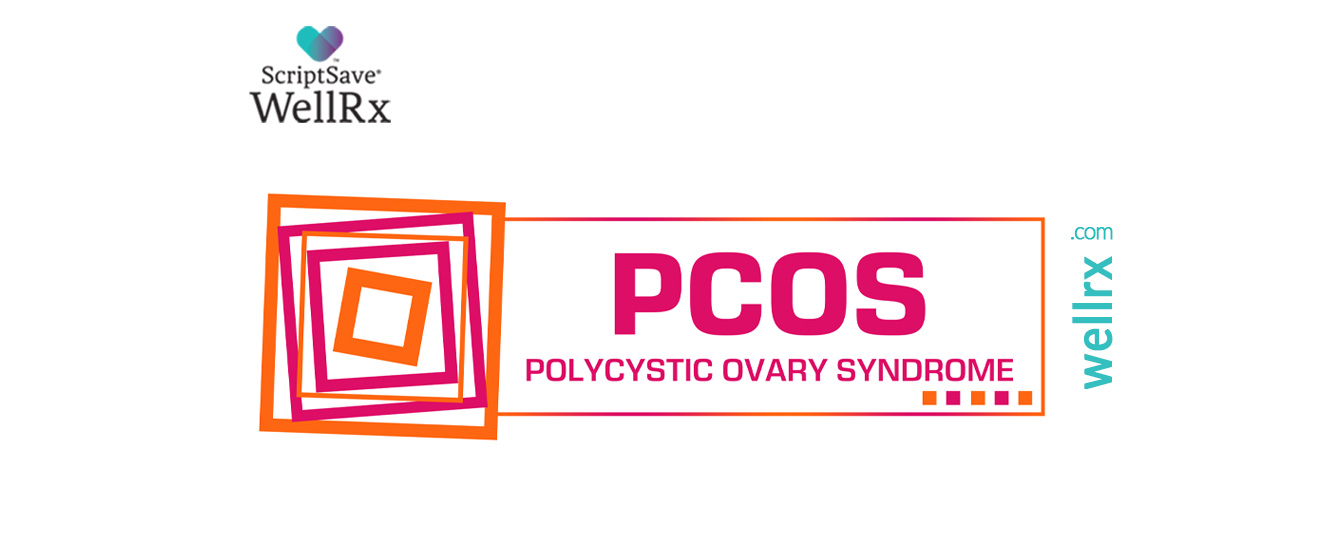Between 4 to 10% of women of reproductive age have polycystic ovarian syndrome (PCOS), making it one of the most common metabolic and reproductive disorders for women in this age group. PCOS presents with a constellation of symptoms associated with irregular periods and hormone imbalances that can impact a woman’s quality of life.
PCOS also carries other comorbidities, including metabolic syndrome, diabetes, cardiovascular disease, and infertility, and may even increase the risk of uterine cancer. This article will go over what you need to know about PCOS.
Defining PCOS
Polycystic Ovarian Syndrome is a health condition due to imbalances of male and female reproductive hormones, leading to problems in the ovaries. According to the American College of Obstetricians and Gynecologists, there is no clear etiology for PCOS, but multiple factors may contribute to a woman developing PCOS. One of the mainstays that lead women to see their gynecologist and be diagnosed with PCOS is menstrual disorders. The most common signs and symptoms of PCOS include:
- Irregular menstrual periods: either infrequent, too frequently, heavy, unpredictable, or even absent
- Obesity: nearly 80% of women who have PCOS are obese
- Excess hair growth on the face, chest, abdomen, or upper thigh: indicative of excess male hormones called androgens
- Oily skin and severe acne: related to androgen hormones
- Acanthosis nigricans: thickened, velvety skin, usually on the back of the neck, axillary, or groin folds
- Multiple fluid-filled sacs: otherwise known as cysts seen in the ovaries on ultrasound
- Infertility
As evidenced by the signs and symptoms of PCOS, this is a condition that affects not only a woman’s reproductive system, but all aspects of a woman’s body. PCOS can increase a woman’s risk of serious conditions with possible lifelong consequences.
Health risks of having PCOS
A woman’s reproductive hormones can be affected by other metabolic hormones in the body. With PCOS, your body’s metabolic hormones are imbalanced, mainly insulin. Insulin resistance can be seen in women with PCOS who may also be obese. Insulin resistance is a condition in which the body’s cells do not respond to the sign that insulin sends them, which is to take in glucose from the bloodstream.
This leads to more insulin being produced by the pancreas as it tries to move the glucose cells needed to function into the cells. Insulin resistance may lead to type II diabetes. Another indication of insulin resistance is acanthosis nigricans, the darkened and velvety skin on the nape of the neck, axillary folds, or groin.
Insulin resistance may be associated with pre-diabetes, as it will require higher glucose levels to get your body to release enough insulin to get the glucose into the cells. As this progresses, you may develop Type II diabetes, which, if left untreated, can lead to damage to large blood vessels of the heart, brain, legs, and small blood vessels of the eyes, kidneys, and nerves.
Another health risk associated with PCOS is endometrial hyperplasia, where the lining of the uterus is thickened, increasing the risk of endometrial cancer. In PCOS, there is chronic stimulation of the innermost lining layer of the uterus by excess estrogen and low progesterone, likely due to episodes of irregular ovulation and periods. This may result in the lining thickening over time, leading to a 2.7-fold increase in the risk of developing endometrial cancer.
Getting evaluated for PCOS
Having PCOS should be on your mind if you are a woman of reproductive age with irregular periods and have symptoms of excess androgens, including acne, excess body hair on the face, chest, upper thighs, or even male-pattern baldness, where the hair recedes above the temples, making a characteristic “M” shape.
Some of the questions your doctor may ask to determine if you have PCOS include the onset and duration of signs of having excess androgen hormones (i.e., excess hair on the face, chest, abdomen), menstrual history, medications, lifestyle (including diet, excess, alcohol use, and smoking), and family history including of any heart disease or diabetes.
Your physician or medical provider may order various types of tests, including a pregnancy test, as this is the most common reason for missed periods. A serum total testosterone will also be ordered, which in women is produced by the ovaries and adrenal glands, or 17-hydroxyprogesterone, which is a hormone made by the adrenal glands as a precursor to cortisol.
Other tests that can be ordered include prolactin, thyroid studies, and follicle-stimulating hormone, a hormone released by the pituitary in your brain that sends signals to your ovaries. Not all women will require imaging of their ovaries via ultrasound, but if your medical provider does order it, then the imaging may show multiple cysts in the ovaries. Finally, your doctor may check your glucose level, including a hemoglobin A1C, which is a test to determine if you have diabetes or pre-diabetes.
Treating PCOS
Since PCOS can have various associated conditions that affect multiple organ systems, treatment for PCOS should be individualized based on your needs and personal desires regarding your reproductive health. Discuss your goals with your medical provider regarding PCOS, especially if you have concerns about irregular periods, ameliorate skin acne or excess hair, metabolic abnormalities, trying to conceive, or preventing endometrial hyperplasia.
For metabolic abnormalities, lifestyle changes and a healthy diet will be the first recommendation from your medical provider. According to the National Health Service in the UK, even a 5% weight loss can lead to significant improvement in PCOS.
If you have been found to have insulin resistance, pre-diabetes, or diabetes, your provider may prescribe metformin (Glucophage®), which can lower insulin and blood sugar levels in women with PCOS. Metformin in women with PCOS can also help decrease androgen levels and improve ovulation, leading to regular periods and improvements in infertility. Metformin is safe to take if you are trying to get pregnant and can be continued during your pregnancy if needed to manage diabetes.
Finally, to help control irregular periods, your medical provider can start you on combined oral birth control pills like levonorgestrel-eth estradiol (Jolessa®, Aviane®), especially if you do not wish to get pregnant. These medications contain estrogen and progestin and help regulate a woman’s cycle. They can also help reduce excess facial or body hair and acne and reduce the risk of endometrial cancer.
If you are a smoker or have high blood pressure, then combined hormonal oral contraceptives may be contraindicated for you if seeking a birth control method. Alternatives include progesterone-only injections like the medroxyprogesterone acetate injection (Depo-Provera®) or intrauterine devices (IUD) like levonorgestrel IUD Mirena® or Liletta®.
Moving forward
Speak with your doctor to get an in-depth evaluation if you have had irregular periods, have excess facial or body hair, or are concerned about your weight and risk of developing diabetes. Remember that PCOS is a constellation of signs and symptoms that impact more than a woman’s reproductive system.
There are many treatment options individualized to your needs. Lifestyle changes and a healthy diet are great first steps. If prescribed any of these medications, speak with your local pharmacist to see if your prescription savings card can help reduce the price. Birth control pills have been around for more than 50 years now; generic formulations work as well as brand-name medications and can bring substantial savings to your wallet.
Gabriel Espinoza, MD has experience in caring for patients in both primary care and emergency settings. Some of the topics he has focused on during his medical career include various areas in public health, pediatrics, and wellness. He has coauthored a chapter on the utility of point of care ultrasound in the diagnoses of various eye conditions. The content written by Dr. Espinoza is for information and educational purposes only. It is not intended to be a substitute for professional medical advice, diagnosis, or treatment. Always seek the advice of your physician with any questions you may have regarding a medical condition.
References:
- https://www.ncbi.nlm.nih.gov/pmc/articles/PMC4820451/
- https://www.acog.org/womens-health/faqs/polycystic-ovary-syndrome-pcos
- https://kidshealth.org/en/teens/acanthosis.html#:~:text=What%20Causes%20Acanthosis%20Nigricans%3F,to%20develop%20type%202%20diabetes.
- https://www.betterhealth.vic.gov.au/health/conditionsandtreatments/diabetes-long-term-effects
- https://www.sciencedirect.com/science/article/abs/pii/S0039128X1300086X?via%3Dihub
- https://medlineplus.gov/genetics/condition/androgenetic-alopecia/
- https://www.aafp.org/afp/2016/0715/p106.html#afp20160715p106-t1
- https://www.nhs.uk/conditions/polycystic-ovary-syndrome-pcos/treatment/
- https://www.ncbi.nlm.nih.gov/pmc/articles/PMC4200666/
- https://drc.bmj.com/content/10/1/e002363
- https://www.ncbi.nlm.nih.gov/pmc/articles/PMC5774551/













 Store & manage your medication list
Store & manage your medication list Medication pricing updates
Medication pricing updates Pill & refill reminders
Pill & refill reminders Medication journal & mood log
Medication journal & mood log